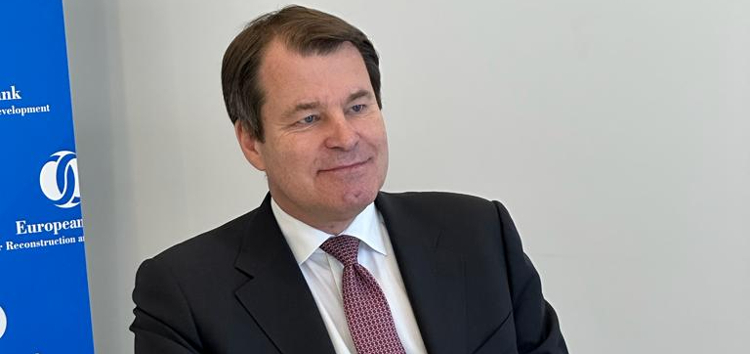EBRD vice president commits to strengthening Tunisia partnership

The European Bank for Reconstruction and Development (EBRD) has reaffirmed its commitment to enhancing collaboration with Tunisia, focusing on advancing the country’s economic and social development goals.
During a meeting held on Thursday, EBRD Vice President Matteo Patrone expressed satisfaction with the progress of the bank’s partnership with Tunisia and its alignment with the nation’s reform priorities.
Patrone met with Tunisia’s Minister of Economy and Planning, Samir Abdelhafidh, alongside Mark Davis, the EBRD’s newly appointed Managing Director for the Southern and Eastern Mediterranean (SEMED) region.
The discussions revolved around financial and technical cooperation, with a particular focus on the 2025 work agenda.
According to a statement from Tunisia’s Ministry of Economy, the parties explored joint projects in critical sectors, including land and rail transport, renewable energy, water management, phosphate production, and private sector development.
Patrone emphasized the EBRD’s commitment to supporting high-impact projects that deliver significant social and economic benefits.
The delegation’s visit also highlighted efforts to boost initiatives in digital transformation and energy development, areas deemed essential for Tunisia’s growth.
Minister Abdelhafidh praised the reforms underway in Tunisia aimed at fostering a resilient and diversified economy while reinforcing the state’s social responsibilities.
He outlined measures being implemented to accelerate project execution and improve the investment climate, ensuring a conducive environment for both local and international investors.
As part of the visit, a memorandum of understanding was signed on November 25 between Tunisia’s Ministry of Industry, Mines, and Energy and the EBRD.
The agreement aims to enhance phosphate production and valorize phosphogypsum, a strategic move to optimize the sector’s output and sustainability.
The EBRD delegation’s visit, running from November 25 to 29, reflects the bank’s continued dedication to supporting Tunisia’s developmental aspirations.
By addressing key infrastructure and economic challenges, the EBRD plays a vital role in shaping the nation’s reform agenda and fostering long-term prosperity.
About The Author
dailymailafric
I am an avid African news observer, and an active member of Daily Mail Africa.
I’m Passionate about staying informed on diverse topics across the continent,
I actively contribute to publishing on political, economic and cultural developments in Africa.



